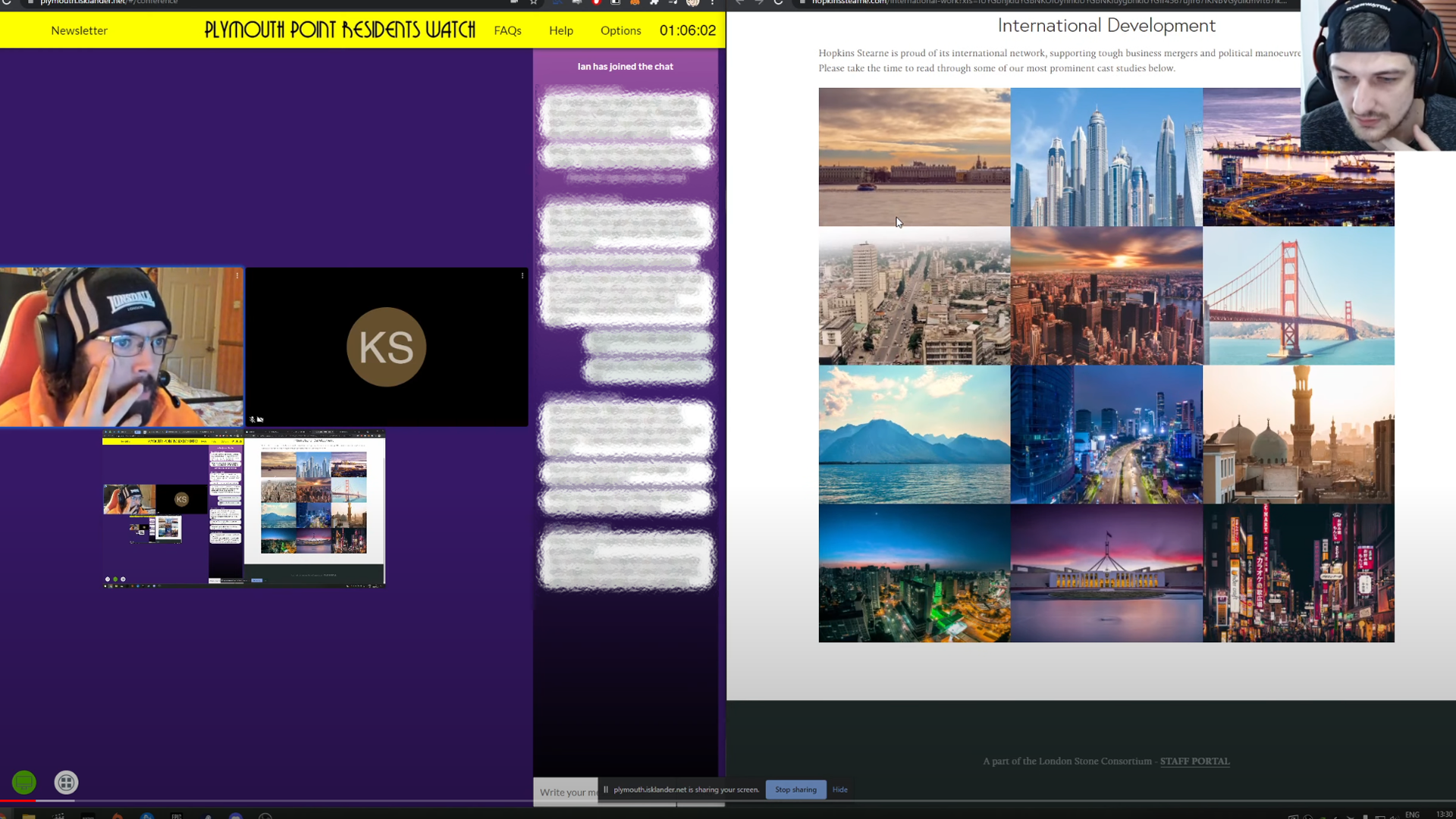
Isklander – A video call murder mystery experience
It starts with a simple premise. At the behest of Kath, the leader of ‘The Plymouth Point Residents Watch’, find information on where Ivy may be; a local girl that has been missing for several days. This request comes both in the form of a worried member of the neighbourhood watch reaching out to private investigators (the ‘players’), and as a personal favour from the older woman who has built a personal connection with Ivy over the past few months, as she had often helped her around the house. From here the group are left to their own devices, literally, and the experience/countdown begins. Even though Kath remains on the call, she will no longer respond to questions (unless the party takes too much time and needs a push forward, I assume. After all, much like escape room games, there is always a real person running things on the other side). All that you’re left with is the hint that ‘Ivy might be on Facebook somewhere’. Immediately this begins to blur the lines of what’s real and the true nature of Isklander as an Alternate Reality Game rears its head.
It gets weird right away. As everyone works through the obvious ton of results from searches on ‘Ivy’ and ‘Plymouth Point’, it’s down to the team to decide which accounts to dive into and snoop around. That’s right! Finding the correct account may mean looking at the timelines and even photos of any number of random people. It’s at this point, no more than five minutes in, that you realise you’re not sure how to differentiate the ‘game’ and the real world, which is exactly where Isklander needed to be. To replicate the atmosphere of a full ARG, the creators had to build in a way to make the people playing start to distrust everything happening around them, and fast. What better way than to push them through Facebook? A site used nearly daily for over a decade by most people. The familiarity of it instantly lends a sense of sincerity to what unfolds. This feeling of uncertainty is then only further perpetuated by having to follow up with breaking into an email account by guessing the password based on common bad practices, discovering connections to YouTube content, skimming pages of a seemingly innocuous websites for clues, needing to follow up on real locations with real social media accounts, and even looking up historic archives, to name a few.

This is what makes ARGs so exciting, they weave their narratives around authentic landmarks and affairs. Now, I’m not new to the format by any means and, in fact, was part of one that has only recently ‘ended’ called ‘Vision 2020’, which started as a YouTube channel that was perfectly predicting the dates at which famous people died years in advance, including the likes of The Amazing Randi and Kobe Bryant. Creepy, right? You have no idea. That one required joining a Discord server full of cryptic lore and pledging undying allegiance to its leaders, at which point it becomes possible to receive your own ‘death date’, so you know exactly when you’ll be dancing with the reaper. Although it was clearly very silly (being called Cult of Pink Eye, for one), there was still an air of morbid mystery that felt all too real at times. The writing helped sell that. The problem here is that this no doubt turned many people away for a multitude of reasons, including not wanting to accidentally be ritualistically sacrificed.
This is the problem with ARGs. They are generally profoundly complex, requiring many people working together over the course of months or even years to solve them and only those that unearth them and are then willing to follow Morpheus down the rabbit hole are able to play. They are unlike anything else, though; thrilling secrets hidden just out of sight, unbeknownst to the rest of the world. I’ve often wanted to share these ‘events’ with others but it’s just not the same to directly tell someone the whole premise – discovery is a huge portion of it. Isklander takes that concept and breaks it down into bitesize 70-min chunks, manageable by anyone familiar enough with basic use of the internet and is exactly what I’ve been looking for. What were once time-sensitive, context-driven, and dizzyingly intricate puzzles specifically made to be almost impossible to find and crack have now been made available for everyone in a condensed but equally gripping way.

We only got to play the first act of the trilogy but are already excitedly planning when we can tackle the rest. The story beats were absorbing, especially in the fantastically theatrical way they’re often presented, and the uncovering of each layer of the enigma becomes its own little spectacle as one question is answered but five more are asked. I already mentioned I’ve been a part of ARGs before. I’m also a fan of Augmented Reality Games (you can learn the difference and find some great examples of other Alternate RGs from Extra Credits). Lately I’ve turned to board games for that ‘escape room’ feeling with the likes of the Exit and Unlock series, although those are mostly just sets of loosely related puzzles. Detective: A Modern Crime Board Game accomplishes something similar by having players research on the internet using a database full of hand-crafted material. The Hunt a Killer boxes are much more open-ended, providing nothing but documents and the odd trinket that need to be cross-referenced and used together to reveal concealed messages and solve the case.
Each of these have unique and interesting mechanics, being especially fun as a sort of team-building exercise. I find myself gifting them a lot for that reason and because I like to revel in hearing how they affected other people as they giddily recall their own stories of the twists, turns, and ‘a-ha!’ moments. I love them all but Isklander may have just taken the crown for this type of immersive group experience. Being online means it can be played with anyone anywhere, which is still especially important right now. The digital aspect makes it effortlessly accessible and available to be updated/tweaked should it need doing. The puzzles are tricky but not off-puttingly difficult or nonsensical. And the story is simple but full of life and compelling hooks. It’s a rousing, enthralling adventure that your party will no doubt be harking back to for some time.